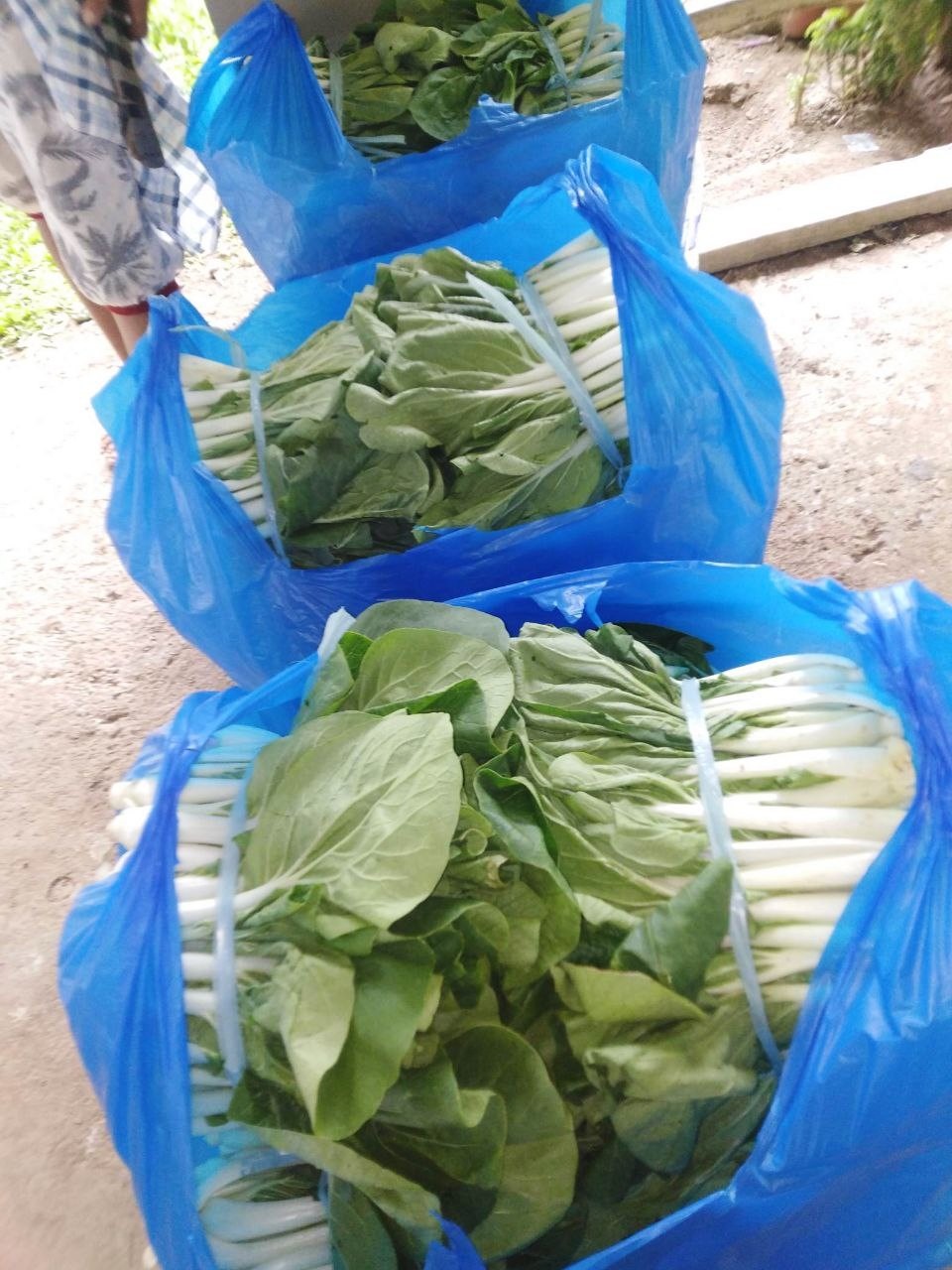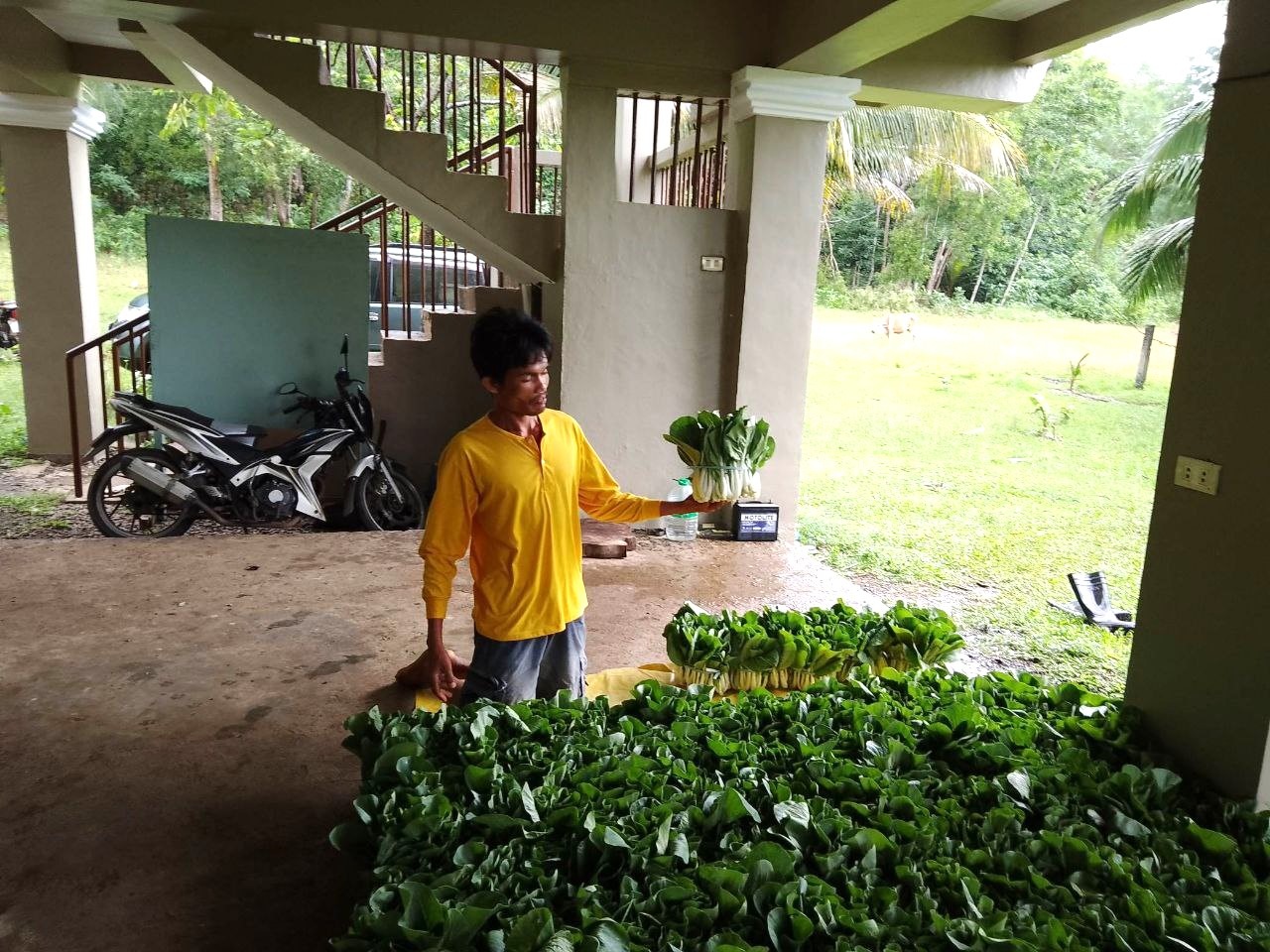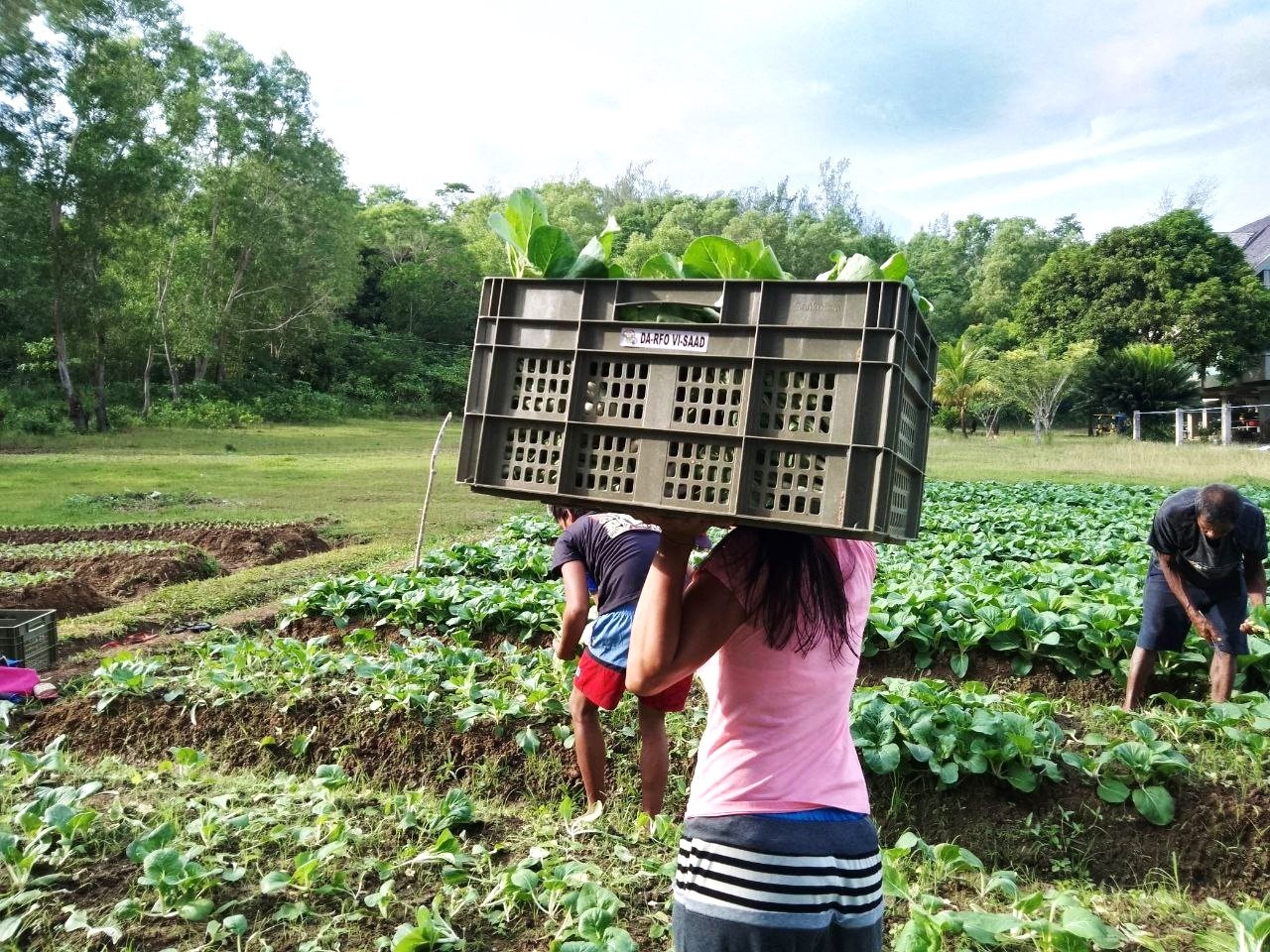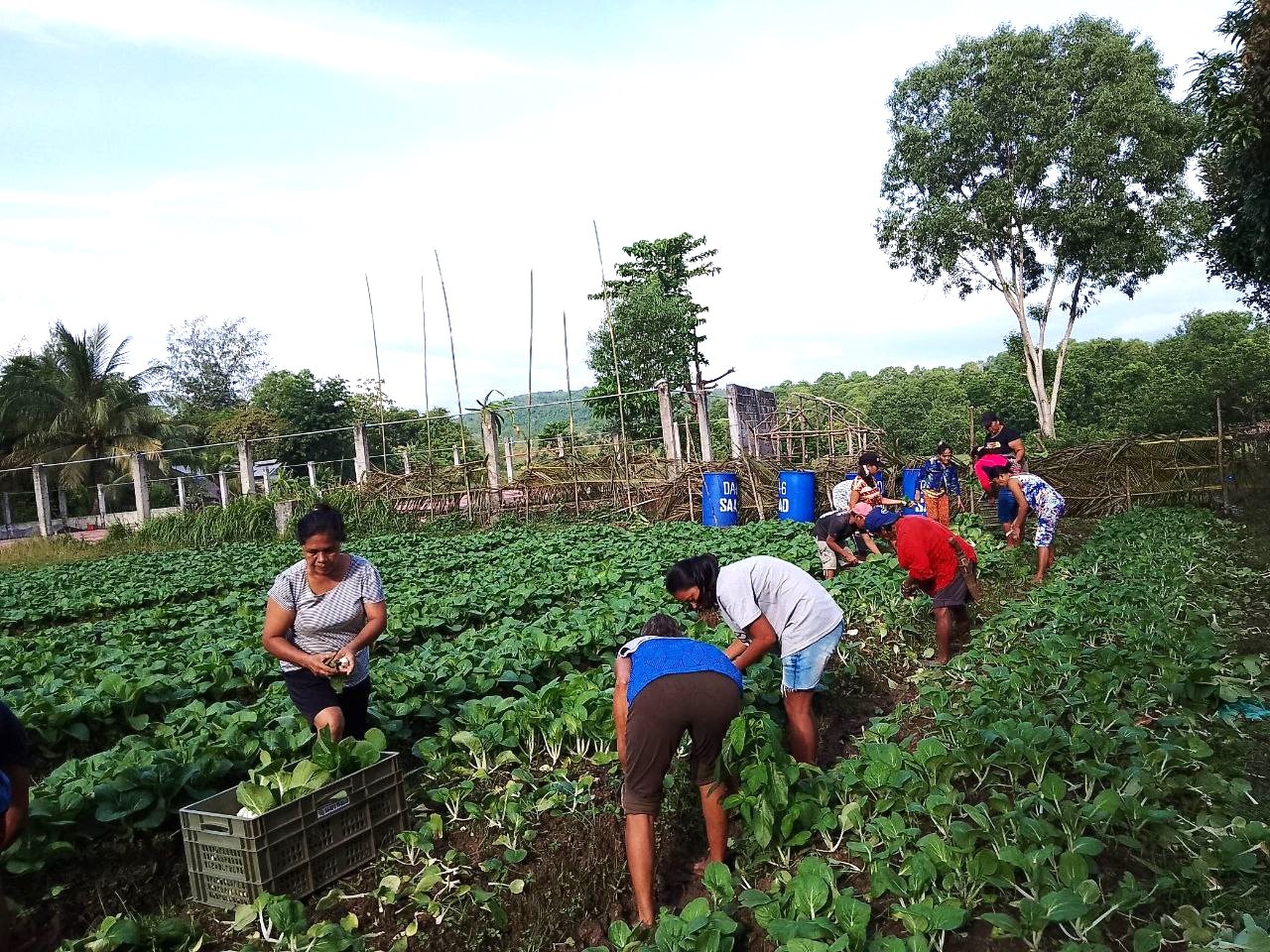AKLAN, August 30, 2023 – Thirty (30) lowland vegetable growers in Tangalan, Aklan recorded Php 25,500 gross income within a month from selling 255 kilograms (kg) of pechay harvest in its first cycle of production after receiving FY 2023 Vegetable Production Project from the Department of Agriculture – Special Area for Agricultural Development (DA-SAAD) Program Phase 2 in July.
The Dumatad Vegetable Farmers’ Association (DUVFA) received vegetables seeds such as ampalaya, squash, hot pepper, tomato, string beans, okra, eggplant, and pechay, including fertilizer, insecticides, seedling tray, and various farm tools. In the coming months, they are set to receive weighing scales, draft animal, plow, harrow, and granule applicator, as part of the project package.
Prior to the provision of the livelihood project, DUVFA members completed their Beneficiary Needs Assessment (BNA) as part of SAAD’s Social Preparation Component. The agricultural profile showed their main livelihood depends on backyard vegetable farming while others also engage in other income-generating activities such as sari-sari store operation, or as farm laborers. Confirming with the baseline data of the local government unit, BNA results revealed the need to provide agricultural inputs as well as technical trainings to the farmers to boost local food production.
DUVFA has a 1-hectare communal garden for production and they dedicated a 500-square meter plot for growing pechay – their first crop with edible green leaves and a staple ingredient in Filipino food such as putchero and nilaga.
As early as June 19, the group practiced the bayanihan system in preparing their garden and started the actual sowing of seeds on July 6. DUVFA President Mr. Eric Tagumpay cited on their approved policy the division of their group into three clusters with 10 members each. Each group is required to render two days of services such as planting, fertilizer and pesticide application, watering, weeding, and harvesting.
“Sa pag-divide sang asosasyon sa tatlo ka cluster, mas nagamag-an pagid ang mga ulubrahon sa uma kay ang kada grupo may yara sang responsibilidad nga mag ubra sa talamnan kag paagi sa sini nga sistema tanan kami ang nagabuliganay guid,” said Mr. Tagumpay.
(In dividing our association into three clusters, the load of work on the farm is much lighter because each cluster has its respective responsibilities, and through this system, we help one another.)
Prior to provision of the livelihood project, the group underwent training on Vegetable Production on June 27, 2023. The training focused on providing the farmers with vegetable production expertise, knowledge on vegetable pest and disease prevention and control, and management skills needed in the daily operations of the said project.Table 1. DUVFA’s harvest and income data from vegetable production
|
Commodity |
Date of Harvest | Volume of Harvest | Selling Price (Php) |
Gross Income (Php) |
Expenses (Php) |
Net Income |
|
Pechay |
July 28 |
225kg |
100.00-110.00 |
25,500.00 |
5,000.00 |
20,500.00 |
After learning the appropriate technologies in vegetable farming, the group was able to harvest 255 kilograms (kgs) of pechay on July 28. The pechay were then bundled, each weighing 1.5kg and were sold at Php 100. They already contacted a buyer in Tangalan Public Market where they agreed to sell the bundles at Php 110 each and the surplus from their produce were sold in the public markets of the neighboring towns, Kalibo and Nabas. DUVFA earned a gross income of Php 25,000 for a month of operation. They then deducted their expenses from hauling fees worth Php 5,000, providing them a net income of Php 20,500.
As of the first week of August, the group transferred seedlings of ampalaya, egg plant, tomato, and string beans cultivated using seedling trays in from their nursery to the plots of their vegetable garden. As short-term cash crops, the group expects harvest between the months of September and October. As agreed by members, DUVFA is implementing a scheme – 15% is intended for land rental fee, 20% for group savings, 5% for officers, and 60% was shared by the members who already received Php 500 each. Most of their pechay yields that are in good condition were sold and those with defects such as slight leaf discoloration, breakage and pest damage were brought home by members for consumption. ###
Writer: Cedie C. Bataga and Christ John Gamarcha, DA-SAAD Region 6 Information Officers







Comments (0)